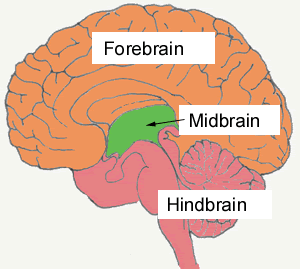Boost Your Brain But Not Too Much!
 The purpose of the Next Brain Blog is to explore ways to enhance brain function and improve cognitive performance. The blog is dedicated to exploring all ways of improving learning, decision-making, creativity, memory, levels of mental energy, pattern recognition, embodied cognition and all things mental. Nature gave us a hindbrain, midbrain and forebrain to deal with challenges in the environment. Optimistically, this blog assumes that we have the science, technology, drugs and training methods to take over where nature left off and create a Next Brain.
The purpose of the Next Brain Blog is to explore ways to enhance brain function and improve cognitive performance. The blog is dedicated to exploring all ways of improving learning, decision-making, creativity, memory, levels of mental energy, pattern recognition, embodied cognition and all things mental. Nature gave us a hindbrain, midbrain and forebrain to deal with challenges in the environment. Optimistically, this blog assumes that we have the science, technology, drugs and training methods to take over where nature left off and create a Next Brain.
But is cognitive enhancement necessarily a good thing? An interesting new article, Why Aren’t We Smarter Already: Evolutionary Trade-0ffs and Cognitive Enhancements suggest that perhaps it is not. The article points out that:
- Having a bigger brain means a baby’s head might not make it through a mother’s pelvis region leading to increases in infant mortality
- Cognition enhancing drugs such as Ritalin can cause poorer performance in individuals with normal attention levels and may interfere with some tasks such as driving because they cause us to over focus on the wrong things
- Having a super sharp or extraordinary memory seems to correlate to leading a difficult life and would certainty magnify the effects of trauma
- Very high IQ individuals may be more prone to genetic nervous system disorders.
The authors argue that our brains are in a natural balance with other parts of our bodies and the environment. Radical improvements in any aspect of cognition throws us out of balance and results in problems. While such fundamental trade-offs might make a supermind or megamind unlikely, the authors point out:
“If you have a specific task that requires more memory or more speed or more accuracy or whatever, then you could potentially take an enhancer that increases your capacity for that task,” he says. “But it would be wrong to think that this is going to improve your abilities all across the board.”
While interventions that are strong enough to create radical cognitive improvements are some time off, the article does begin to develop a framework for a deeper understanding of the issues and limitations associated with our ambition for bigger better brains.


.…
ñïàñèáî çà èíôó!…
.…
ñïñ!!…
.…
tnx for info!!…
.…
tnx for info!…
.…
áëàãîäàðåí!…
.…
thank you!…
.…
good info!!…
.…
áëàãîäàðñòâóþ!!…
.…
good….
.…
tnx for info!!…
.…
ñïàñèáî çà èíôó!!…